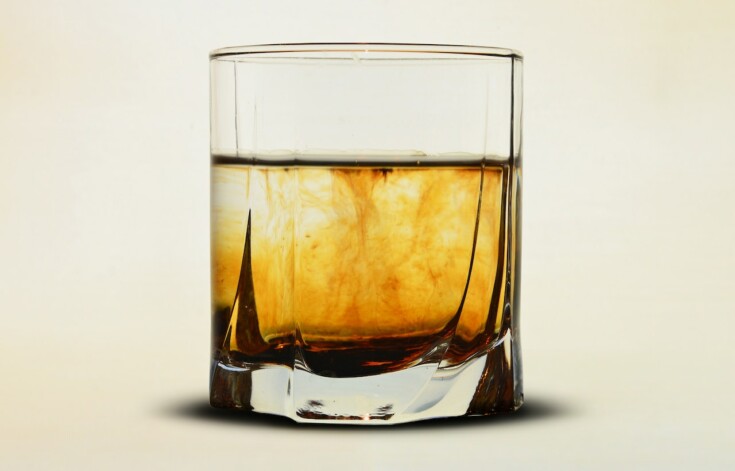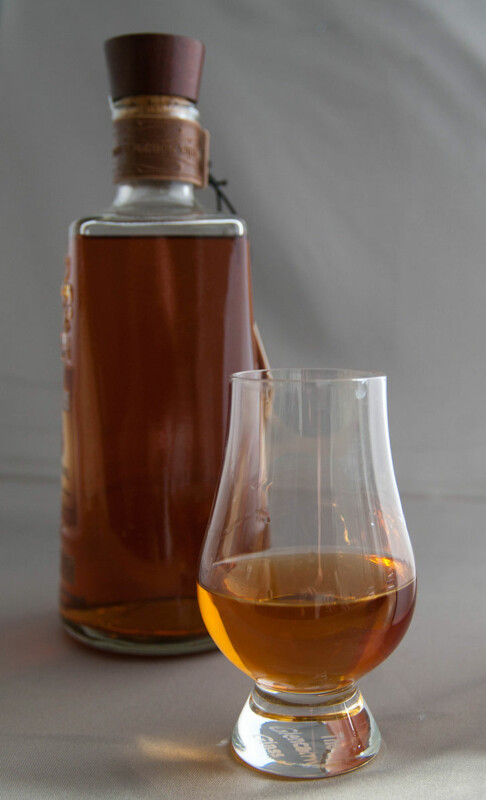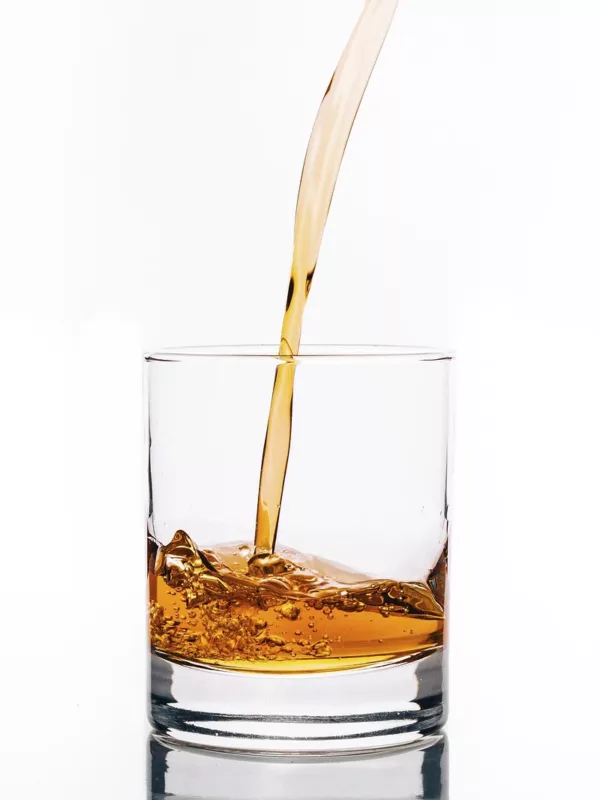
Bourbon is a type of whiskey that is beloved by many for its distinct flavor and aroma. It is made from a mixture of grains, mainly corn, and is aged in charred oak barrels for a minimum of two years. However, there is some confusion among bourbon enthusiasts about whether or not bourbon continues to age in the bottle after it has been bottled.
Table of Contents
Bourbon Aging Process
Bourbon is a type of whiskey that is made primarily from corn and aged in charred oak barrels. The aging process is a critical step in the production of bourbon, as it imparts the unique flavors and aromas that are associated with the spirit.
The aging process begins after the bourbon has been distilled and placed in new, charred oak barrels. The barrels are then stored in a warehouse, where they are left to age for a period of time. The length of time that bourbon is aged can vary depending on a number of factors, including the type of barrel used, the climate in which it is stored, and the desired flavor profile.
During the aging process, the bourbon interacts with the wood of the barrel, which imparts flavors and aromas such as vanilla, caramel, and oak. The longer the bourbon is aged, the more complex and nuanced these flavors become.
Federal regulations require that bourbon be aged for a minimum of two years to be considered straight bourbon. However, many bourbons are aged for much longer than this, with some being aged for up to 20 years or more.
It is important to note that bourbon does not continue to age once it has been bottled. Unlike wine, which can continue to age and develop in the bottle, the aging process of bourbon stops once it is bottled. As a result, the age of the bourbon is determined by the amount of time it spent aging in the barrel, not the amount of time it has been in the bottle.
 photo credit: commons.wikimedia.org
photo credit: commons.wikimedia.org
Bottle Aging: Myth or Reality
In this section, we will explore whether bottle aging is a myth or a reality.
Chemical Reactions
The aging process of bourbon in the barrel is a complex chemical reaction that involves the interaction of the alcohol with the charred oak. During this process, the alcohol extracts flavors and colors from the wood, resulting in a unique taste and aroma. However, once the bourbon is bottled, the aging process stops because there is no longer any interaction with the wood.
Some people believe that the alcohol in the bottle can continue to interact with the air and other compounds in the bottle, leading to further chemical reactions that can change the taste of the bourbon over time. However, there is no scientific evidence to support this claim. In fact, most experts agree that once the bourbon is bottled, it will not change significantly, even if it is stored for many years.
Environmental Factors
Environmental factors such as temperature, light, and humidity can affect the quality of bourbon over time. For example, exposure to sunlight can cause the bourbon to oxidize and lose some of its flavor and aroma. High temperatures can also cause the bourbon to expand and contract, which can lead to leakage and spoilage.
To ensure that bourbon maintains its quality over time, it is important to store it in a cool, dark place, away from direct sunlight and heat sources. It is also recommended to store the bottle upright, rather than on its side, to prevent the cork from drying out and allowing air to enter the bottle.
It is a Myth!
 photo credit: www.rawpixel.com
photo credit: www.rawpixel.com
Unlike wine, which can continue to age and improve over time, the aging process of bourbon stops once it has been bottled. This means that the flavor and aroma of the bourbon will remain the same, regardless of how long it has been stored in the bottle. However, this does not mean that the quality of the bourbon will not degrade over time. The longer the bourbon is stored in the bottle, the greater the chance that it will be exposed to air and other elements that can cause it to lose its flavor and aroma.
Impact of Bottle Aging on Bourbon
Bourbon that has been stored in a bottle for an extended period may actually lose some of its flavor and aroma due to oxidation. This is because the whiskey is exposed to air, which can cause the alcohol to evaporate and the flavors to dissipate.
It is important to note that the quality of the bourbon depends on how it was aged in the barrel and not how long it has been in the bottle. The aging process in the barrel is what gives the whiskey its unique flavor and aroma.
Frequently Asked Questions
What is the optimal age for bourbon?
The optimal age for bourbon varies depending on personal preference. Generally, bourbons aged between 6 to 10 years have a good balance of flavors, while those aged longer tend to have a richer and more complex taste. However, some people prefer younger or older bourbons depending on their taste preferences.
How does the aging process affect bourbon’s flavor?
During the aging process, bourbon absorbs flavors from the charred oak barrels, which gives it its characteristic taste. The longer the bourbon is aged, the more it absorbs from the barrel, resulting in a richer and more complex flavor. Additionally, the aging process also helps to mellow out the harshness of the alcohol, resulting in a smoother taste.
Does bourbon continue to age in the bottle?
No, bourbon does not age in the bottle. Once bourbon is bottled, the aging process stops. Unlike wine, which can continue to age and develop in the bottle, bourbon’s flavor profile will remain the same after it has been bottled.
What is the difference between aging in barrels and aging in the bottle?
Aging in barrels and aging in the bottle are two different processes that affect the flavor of bourbon differently. Aging in barrels allows the bourbon to absorb flavors from the charred oak, while aging in the bottle does not. Additionally, aging in the bottle can also cause the alcohol to evaporate over time, which can affect the flavor and quality of the bourbon.
Can bourbon go bad if aged too long in the bottle?
Bourbon does not go bad if aged too long in the bottle, but it can start to lose some of its flavor and quality over time. The alcohol in the bourbon can also start to evaporate, which can affect the taste and aroma of the bourbon.
Is it worth aging bourbon in the bottle for a long period of time?
It depends on personal preference. Some people enjoy the taste of older bourbons that have been aged for a longer period of time, while others prefer younger bourbons. However, it is important to note that once bourbon has been bottled, the aging process stops, so aging it in the bottle for an extended period of time will not improve its flavor.
Conclusion
Bourbon does not age in the bottle. Once it is bottled, the aging process stops, and the bourbon will remain the same. This is because the wood in the barrel is what imparts flavor and color to the bourbon, and once it is removed from the barrel, it no longer interacts with the wood.
Overall, understanding the aging process of bourbon can enhance one’s appreciation of this beloved spirit. While it may not age in the bottle, the time spent in the barrel is what gives bourbon its unique character and depth of flavor.
Related Posts
Here are some posts related to bourbon aging that readers may find interesting. These posts provide additional information on bourbon and may be of interest to readers who want to learn more about the topic:
- New Johnnie Walker “Blenders’ Batch Bourbon Cask & Rye Finish” Launched
- Blanton’s Bourbon Costco Price Guide: How to Get the Best Deal
- Old Elk Bourbon Prices: How Much You Can Expect to Pay
- NYC Urban Bourbon Trail
- Unveiling the MSRP of Smoke Wagon Bourbons: A Complete Pricing Guide



